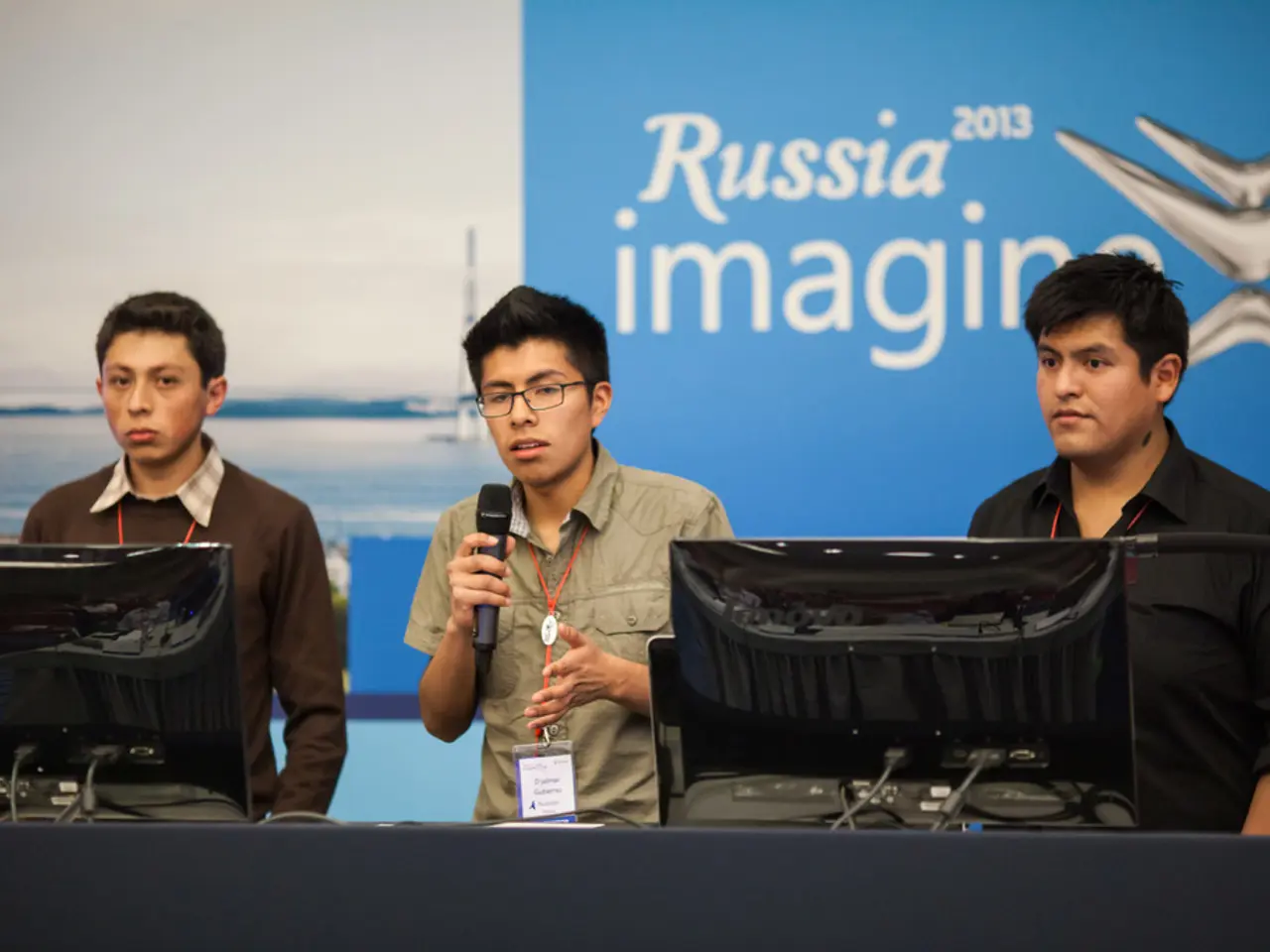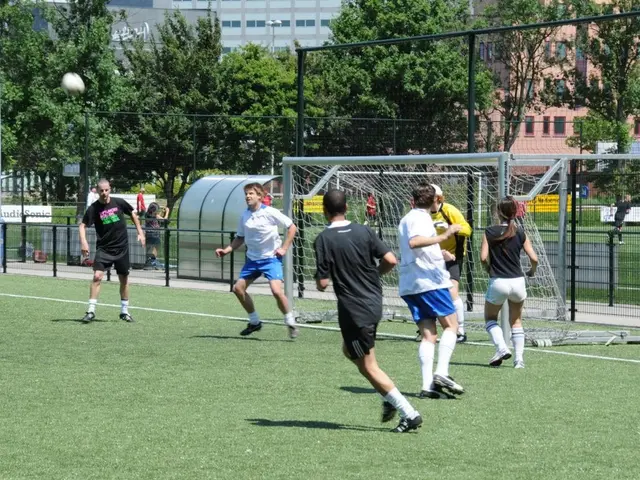Trump rally is being orchestrated by Merz.
In the lead-up to US President Donald Trump's scheduled meeting with Russian leader Vladimir Putin in Anchorage, Alaska, on Friday, August 2025, Europe has mobilised a coordinated diplomatic effort to influence Trump's policy towards Ukraine and secure a peaceful resolution.
German Chancellor Friedrich Merz has been at the forefront of this campaign, organising a series of video conferences with European heads of state and government to discuss their approach. Merz has emphasised the importance of maintaining transatlantic support for Ukraine and pressuring Trump to endorse a cease-fire as a minimum step for peace talks.
In a recent conference at the Federal Chancellery, Merz and Ukrainian President Volodymyr Selenskyj shared their concerns about the ongoing conflict and the need for robust security guarantees for Ukraine. Selenskyj emphasised that Russia's military capabilities are a bluff, as they have three times as many losses as Ukraine despite having three times as much artillery. He also made it clear that Putin does not want peace, but rather to occupy Ukraine completely.
The Europeans have united in their assessment of the situation and their achievable goal for the meeting. They want to prevent the Russian demand for the "demilitarization" of Ukraine, as it could lead to another invasion. Merz has praised Trump in public statements while also attempting to influence him in the interests of the Europeans.
In addition to diplomatic efforts, Europe has also taken the lead in military aid to Ukraine, partially offsetting the decline in US support under Trump's administration. This reflects a broader European strategy to compensate for uncertain US commitment while trying to maintain leverage over US policy indirectly.
However, despite these efforts, Trump did not endorse the cease-fire at the summit with Putin, signaling challenges in sustaining US-European alignment on Ukraine policy. The Europeans are concerned about being marginalized from direct negotiations with Russia and the US, as Ukraine and Europe were absent from the Alaska talks.
After Merz's and Selenskyj's meeting, a conference of the "Coalition of the Willing" was held under the leadership of French President Emmanuel Macron and British Prime Minister Keir Starmer. The goal of these conversations is to set the right course for the meeting and prevent Ukraine and Europe from being left out in the cold.
Despite the uncertainties surrounding the summit, Merz has expressed a hopeful yet cautious outlook. He wants Trump to be successful in Anchorage, but not at the expense of Ukraine and Europe. The immediate outcome may have been disappointing from a European perspective, but the diplomatic efforts are expected to continue post-summit in an attempt to reinforce the European position and counterbalance Trump’s fluctuating stance.
Read also:
- Massive 8.8 earthquake hits off the coast of Russia's Kamchatka Peninsula, prompting Japan to issue a tsunami alert.
- Court petitions to reverse established decision on same-sex marriage legalization
- Proposed Standardization of Food Labeling Laws Among Member States by the Commission
- Experimenting with Merz's Germany has stretched into an extended period of time, resembling a numerous three-month duration.






